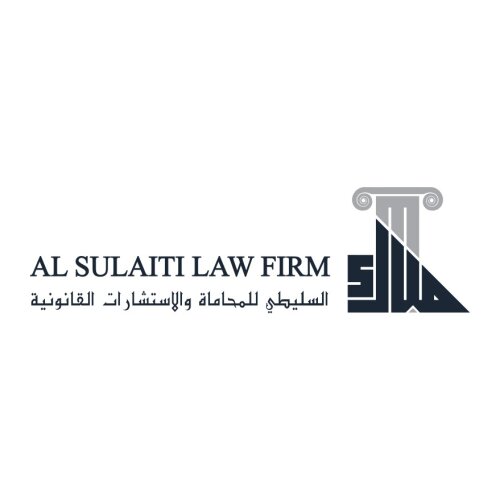Best Restructuring & Insolvency Lawyers in Doha
Share your needs with us, get contacted by law firms.
Free. Takes 2 min.
List of the best lawyers in Doha, Qatar
About Restructuring & Insolvency Law in Doha, Qatar
Restructuring and insolvency law in Doha, Qatar addresses situations where companies or individuals cannot meet their financial obligations to creditors. These laws provide a framework for managing financial distress, enabling restructuring or, if necessary, the orderly winding up of businesses. They aim to protect the rights of creditors, support the rehabilitation of viable businesses where possible, and ensure an equitable process for distributing assets in cases of insolvency. Over the past decade, Qatar has modernized its approach to insolvency to align more closely with international best practices, including introducing preventative settlement procedures, restructuring options, and transparent liquidation mechanisms.
Why You May Need a Lawyer
If you or your business is facing financial difficulties, navigating the legal landscape of restructuring and insolvency can be complex and daunting. A lawyer specializing in this field can help you understand your rights, assess your options, and guide you through various legal processes. Common situations requiring legal assistance include negotiating with creditors, filing for insolvency, advising on restructuring plans, representing your interests in court, or protecting assets from wrongful claims. Obtaining tailored legal guidance is crucial, as each case is unique and the consequences of missteps are significant for both debtors and creditors.
Local Laws Overview
Qatar’s local laws related to restructuring and insolvency are primarily governed by the Qatari Commercial Companies Law (Law No. 11 of 2015) and specific bankruptcy provisions under Law No. 27 of 2006 (the Commercial Law). In addition, the Qatar Financial Centre (QFC) has its own insolvency regulations for entities operating within its jurisdiction. Key aspects include:
- Preventative settlement procedures that allow debtors to propose compromises to creditors
- Restructuring options, including court-supervised restructuring and informal out-of-court arrangements
- Formal insolvency processes such as liquidation and bankruptcy, including both voluntary and court-mandated procedures
- Protections for creditors, priority rules, and the appointment of court officials to supervise proceedings
- Potential civil and criminal liabilities for directors in cases of fraudulent or wrongful trading
- Recognition of some international insolvency and restructuring principles under the QFC regime
It is important for businesses and individuals to be aware of the timelines, documentation, and procedural requirements imposed by the relevant laws, and to understand the differences between the onshore and QFC regimes.
Frequently Asked Questions
What is the difference between restructuring and insolvency in Qatar?
Restructuring refers to legal processes that allow financially distressed businesses to reorganize their affairs and continue operating, often through agreements with creditors. Insolvency is a broader term that refers to a situation where an individual or company cannot pay its debts as they fall due, which can lead to liquidation or bankruptcy if not remedied.
Who can initiate insolvency proceedings in Qatar?
Both debtors and creditors can initiate insolvency proceedings. A debtor may file for insolvency voluntarily, while creditors may petition the court if they are unable to recover debts owed to them.
Are there alternatives to formal insolvency in Qatar?
Yes. Qatar law provides for preventative settlement and restructuring procedures, allowing distressed businesses to negotiate with creditors and avoid full insolvency or liquidation when possible.
What happens to employees if a company becomes insolvent?
Employee claims, including unpaid wages and end of service benefits, often receive priority in insolvency proceedings. However, the actual payout depends on asset availability and the specific order of creditor priorities.
How are creditors paid in Qatari insolvency proceedings?
Payments to creditors are made according to priority rules set by law. Secured creditors are typically paid first, followed by employees, government claims, and then unsecured creditors.
What is the difference between onshore and QFC insolvency regimes?
The law applicable depends on whether the entity operates in mainland Qatar or within the Qatar Financial Centre. The QFC has its own set of insolvency regulations, which may differ from general Qatari law in procedural details and recognition of foreign judgments.
Can foreign creditors participate in insolvency proceedings in Qatar?
Yes. Both local and foreign creditors may participate in insolvency proceedings, although local enforcement and recognition processes may apply depending on the nature and location of the debt.
What are the director’s duties in case of financial distress?
Directors are required to act in the best interests of the company and its creditors when financial distress arises. Failure to do so, or engaging in fraudulent trading, may lead to civil or criminal liability.
Are personal insolvency and corporate insolvency treated differently?
Yes. Different rules and procedures apply depending on whether the insolvent party is an individual or a company, affecting eligibility, process, and available outcomes.
Can a company continue operating during restructuring or insolvency proceedings?
In certain cases, especially where restructuring is being pursued, the company may continue to operate under court supervision, aiming to maximize returns for creditors and preserve value.
Additional Resources
If you require further information or assistance, the following resources may be useful:
- The Ministry of Commerce and Industry - for commercial company regulations and advice
- The Qatar Financial Centre Authority - for QFC-based entity regulations
- Qatar Central Bank - for guidance on banking sector insolvency
- Civil and Commercial Courts at the Supreme Judiciary Council - for insolvency proceedings and disputes
- Licensed law firms specialized in restructuring and insolvency matters
Next Steps
If you or your business faces financial distress in Doha, Qatar, it is important to seek experienced legal counsel as soon as possible. Gather all relevant financial documents and be prepared to disclose your financial situation fully. Reach out to a reputable law firm or a legal advisor specializing in restructuring and insolvency. An initial consultation will help assess your options, whether that involves informal negotiation, formal restructuring, or insolvency proceedings. Timely legal advice can help protect your interests, minimize risks, and guide you toward the most effective resolution.
Lawzana helps you find the best lawyers and law firms in Doha through a curated and pre-screened list of qualified legal professionals. Our platform offers rankings and detailed profiles of attorneys and law firms, allowing you to compare based on practice areas, including Restructuring & Insolvency, experience, and client feedback.
Each profile includes a description of the firm's areas of practice, client reviews, team members and partners, year of establishment, spoken languages, office locations, contact information, social media presence, and any published articles or resources. Most firms on our platform speak English and are experienced in both local and international legal matters.
Get a quote from top-rated law firms in Doha, Qatar — quickly, securely, and without unnecessary hassle.
Disclaimer:
The information provided on this page is for general informational purposes only and does not constitute legal advice. While we strive to ensure the accuracy and relevance of the content, legal information may change over time, and interpretations of the law can vary. You should always consult with a qualified legal professional for advice specific to your situation.
We disclaim all liability for actions taken or not taken based on the content of this page. If you believe any information is incorrect or outdated, please contact us, and we will review and update it where appropriate.
















